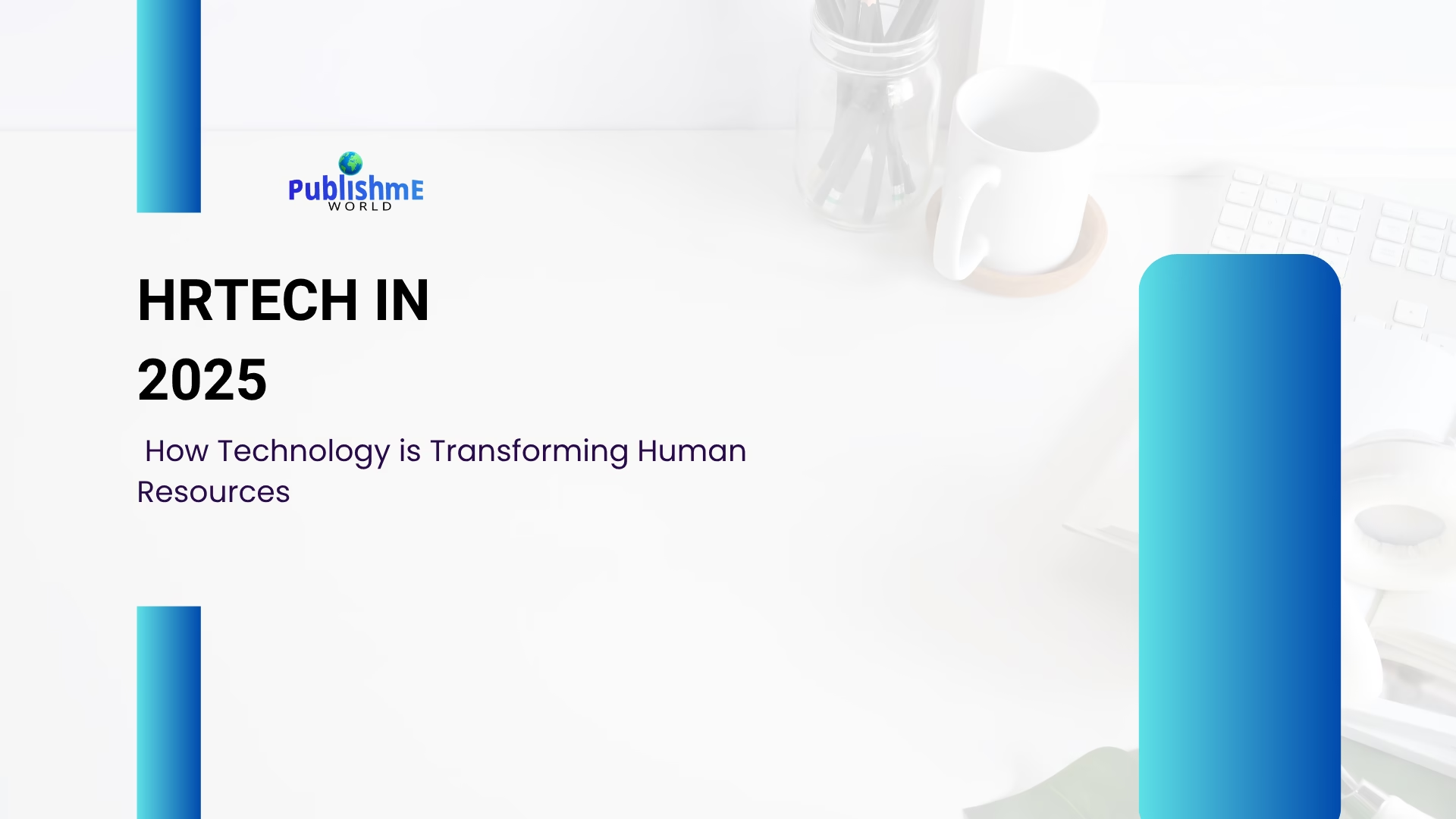Contents
Introduction: The Rise of HRTech
Human Resources (HR) is no longer just about hiring and payroll. In 2025, HRTech—the use of technology to manage HR processes—has become a strategic driver for organizational growth. From AI-driven recruitment tools to employee engagement platforms, technology is redefining how companies hire, manage, and retain talent.
This blog explores the key trends, tools, and the future of in 2025.
What is HRTech?
HRTech refers to the integration of digital tools, platforms and software that streamlines HR functions such as employment, on board, training, performance management, salaries and employees’ experience.
These solutions improve efficiency, reduce manual errors, increase employee satisfaction and provide valuable data for decision -making
Key HRTech Trends in 2025
AI driven recruitment
By 2025, AI resumed screening, job matching and candidate points. HR subject people now use devices such as Hirrevue, PyMetrics and LinkedIn Talent Insight:
Analysis of candidate behavior
Match job roles with skills
Remove employment by means of anonymous screening
AI not only reduces lease time, but also improves the quality of the rent.
- People Analytics and Predictive Insights
HR sections now rely on people’s analysis platforms, to predict:
employee’s turnover
Productivity pattern
Exercise
Tools HR leaders such as Visies and SAP Successfactors help HR managers make data production decisions and reduce estimates.
- Distance work and digital onboarding
Post-pandemic, distant and hybrid work is to live here. Allow HRTech platforms such as Bamboohr and Workbright:
Paperless Onboarding
Digital Document Verification
Video -based workout
Virtual onboarding increases new price experience and reduces administrative overhead.
- Platform for employee experience
In 2025, employee experience is a top priority. HR culture uses platforms such as AMP, Peakon and OfficeVibe:
Employee track connection
Collect feedback through the survey
Take timely action to improve satisfaction
Happy employees mean low attention and high productivity.
- Blockchain in HR
Education Credit Verification
Employee record -proof
Manage probation outside the boundaries
Solutions like Chronobank and Appii change how HR handles verification and safety.
Major Hrtech Equipment in 2025
Category equipment/software
Recruitment LinkedIn Talent Solutions, Hirrevue, PyMetrics
Onboarding Bambohar, Workbright
Parole Gusto, Mocoling, ADP
Demonstration forged, 15 Five, cultural amplifier
Analytics Visies, Sap SuccessFactors
For business learning and development, EDP, Udmi Business
Benefits of HRTech for Businesses
Increased Efficiency
Automating repetitive tasks like payroll, attendance, and recruitment reduces workload.
Better Talent Acquisition
AI tools ensure hiring the right candidates faster and more objectively.
Improved Compliance
HRTech ensures labor laws and regulations are automatically followed.
Data-Driven Decisions
With real-time dashboards and insights, HR teams can make informed strategic moves.
Enhanced Employee Engagement
Digital tools foster open communication, feedback, and career growth.
Challenges in HRTech Adoption
Despite the benefits, Hrtech faces challenges:
Data Privacy Interest: Sensitive employee requires a safe system for handling data.
Change management: Employees and HR professionals require training to use new platforms.
Problems with integration: It can be complicated to connect hrtech with cultural monuments.
Cost barriers: Small companies can struggle with high licenses and implementation costs.
The Future of HRTech: What to Expect?
When we look ahead, Hrtech here has some innovations in games:
Hyper-personalized employees travel
AI will provide adapted L&D content, display reaction and welfare plans for each employee.
AR/VR for training and boarding
Promoted reality and virtual reality will bring revolution in board and security training, especially in industries such as production and health care.
for emotional AI velvær
AI that can detect burnout or emotional crisis through behavioral analysis will help HR teams to intervene quickly.
Talent Marketplace
Internal mobility will improve with AI-based platforms that suggest the inauguration and development opportunities of the internal job.
HRTech for Small Businesses
Even small and medium enterprises (SMEs) can benefit from cost-effective tools:
- Zoho People – for all-in-one HR management
- Keka – for attendance, payroll, and performance
- Freshteam by Freshworks – affordable ATS and onboarding system
These platforms offer scalable features tailored to growing businesses.
Conclusion
HRTech in 2025 is not just an option—it’s essential. As workplaces evolve, companies that embrace human resource technology gain a competitive edge. From smarter hiring to better employee retention, the impact of HRTech spans every corner of the employee lifecycle.
Whether you’re a startup, SME, or a global enterprise, investing in the right HR tools is the key to building a future-ready workforce.

